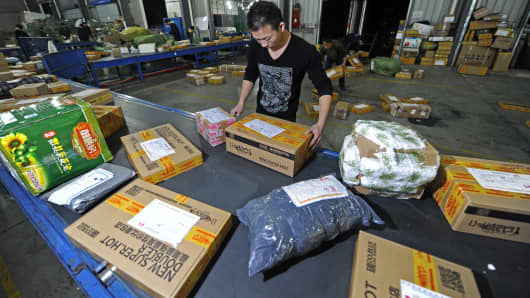
( Photo: Chris Winter)
Around 8,000 people flocked to the new Wembley Market on its first day of Sunday trading yesterday.
Shoppers enjoyed the wares on offer at the 210 stalls following the re-opening of the popular trading place which was axed by developers Quintain last year due to the volume of fake goods for sale after 25 years.
The new market promises to be free of counterfeit goods in light of its previous reputation with its new operators signed a code of practice with Brent and Harrow Trading Standards Service.
Mark Betts, associate headteacher of St Joseph’s Junior School in Wembley, said: “I’ve been living in Wembley now for almost 24 years and I’ve seen been a huge number of changes in the area.
“Wembley Park is becoming a real hub and it’s really contributing to the regeneration and development of the area.
“People have a reason to come to Wembley again and that revitalisation is really exciting, it’s making a big difference to the community.”
All stallholders went through a vetting process where they were assessed to ensure the goods they have for sale are genuine, safe and of the highest quality.
James Saunders, CEO of Quintain said: “Local people clearly welcomed the range of stalls and the market was busy from the moment it opened.
“The food offering was particularly delicious and diverse; from Peruvian to Indian street food, and from organic honey to tempting cakes.
“Other stalls included hand-made felt toys, clothes and general household goods. We want to bring new stall holders to site, as well as make space for traditional Wembley market traders and create a market that is a hub for the local community.”
The new market will take place every Sunday except when there is a major event at the Stadium.
Until the end of the year the market will be open from 10am and 4pm on October 12 and 19, November 2, 16 and 30, and every Sunday in December.
If you are interested in becoming a stall holder visit www.wembleypark.com and fill out an application form
http://www.kilburntimes.co.uk/news/thousands_visit_wembley_market_on_its_first_day_1_3796814



